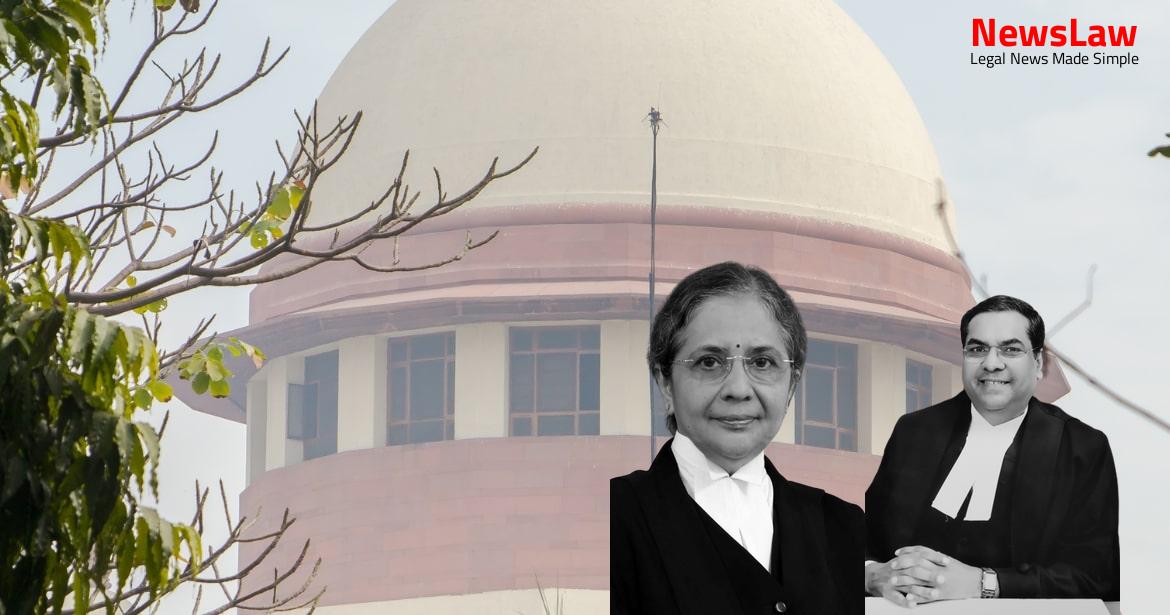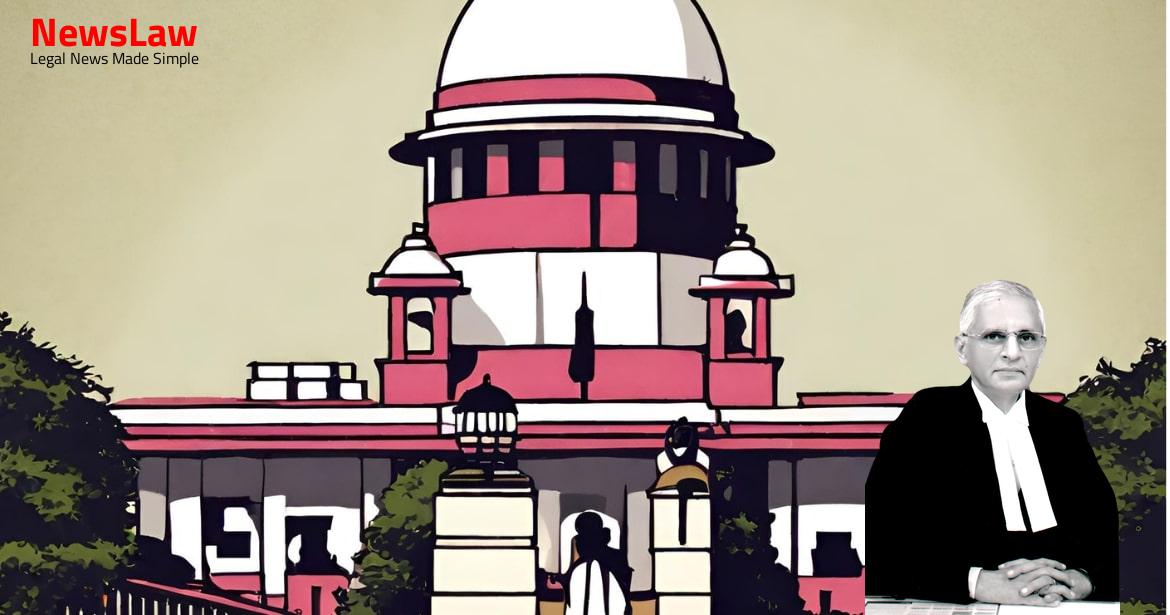The court’s legal analysis in a recent case delves into the intricate issue of the authority of the Karta in transactions involving joint Hindu family property. The case raises crucial questions about legal necessity, the powers of the family manager, and the implications of not obtaining all coparceners’ signatures. Explore how the court navigates these complexities to render a definitive judgment impacting the rights and obligations of joint Hindu family members.
Arguments
- The first respondent, V. Manjunath, contests the appeal before the court.
- K. Veluswamy, the Karta of the joint Hindu family, executed an agreement to sell the suit property on 8 December 2006 for Rs. 29 lakhs and received Rs. 4 lakhs as advance from the appellant Beereddy Dasaratharami Reddy.
- K. Veluswamy and the second respondent have not contested the appeal.
- The legal issue in question is whether K. Veluswamy, as the Karta, had the authority to execute the agreement to sell the agricultural land measuring a total of 11 acres 21 guntas.
- Beereddy Dasaratharmi Reddy filed a suit for specific performance of an agreement to sell against K. Veluswamy and V. Manjunath.
- The Court decreed the suit, rejecting the defense that the agreement was a loan agreement disguised as an agreement to sell.
- The Court found that K. Veluswamy executed the agreement for Rs.29 lakhs and received Rs.4 lakhs as advance but deemed it unenforceable since the property belonged to the joint Hindu family.
- The Court held that since the property belonged to the joint Hindu family, the agreement required the signature of V. Manjunath, meaning it was improperly executed.
- The Court cited a previous case to assert that legal necessity and Karta’s authority were not established in this case, leading to the dismissal of the suit.
- K. Veluswamy and his wife signed the agreement to sell, along with P.B. Basavarajaiah, but the absence of V. Manjunath’s signature was crucial in the court’s decision.
- V. Manjunath appealed the decision before the High Court of Karnataka and was successful in overturning the lower court’s ruling.
Also Read: Land Auction Dispute Resolution
Analysis
- Omission to frame an issue as required under Order XIV Rule 1 of the Code of Civil Procedure, 1908 does not vitiate the trial when parties are fully aware of the rival case and lead evidence accordingly.
- Transfer of the suit property to a third person during the appeal is subject to the doctrine of lis pendens, and setting aside the impugned judgment would bind the respondents to perform obligations under the agreement to sell.
- The rights of the Karta in a joint Hindu family property regarding legal necessity or betterment of the estate are valid and binding on other coparceners.
- Legal necessity in Hindu Law allows the father to alienate ancestral property for specific purposes such as government revenue, debts payable from family property, maintenance, marriage expenses, etc.
- Reference to Mulla on Hindu Law clarifies legal necessity criteria and responsibilities of the family manager in property transactions.
- The decision in Pemmada Prabhakar case is not applicable to joint Hindu family property scenarios.
- Payment and receipt of advance in an agreement to sell a joint Hindu family property are valid, irrespective of the agreement signatures by all coparceners.
- The right of the Karta to execute agreements or sale deeds for joint Hindu family properties is established through various court judgments.
- Legal necessity for alienation of joint Hindu family property is determined case by case, including circumstances like tax obligations for family business.
- Alienation by the Karta for legal necessity or benefit of the estate binds all members of the family, even minors or widows.
- Payment terms in the agreement to sell include Rs. 4 lakhs as advance with the remaining Rs. 25 lakhs to be paid within three months for the sale deed execution and registration.
- The Karta has wide discretion in deciding legal necessity and how it can be fulfilled.
- Once legal necessity is proven, no co-coparcener can challenge the sale by the Karta.
- Existence of legal necessity was shown through the family’s need for funds.
- Any disputes arising from the sale would be resolved by the executants themselves.
- Executants avowed they needed funds for domestic necessities, justifying the sale.
- Executants were responsible for clearing any encumbrances on the property before the sale.
- Legal necessity depends on the facts of each case and cannot be broadly defined.
- A coparcener can challenge alienation if it was not for legal necessity or estate improvement.
- Signatures of Karta’s son on the agreement to sell were not necessary.
- Karta had the authority to execute the sale and alienate the property regardless of the son’s signature.
Also Read: Analysis of Bail Conditions in Criminal Appeal No. INSC 48/2024
Decision
- The appellant will deposit the balance sale consideration of Rs.25 lakhs in the trial court within eight weeks.
- The deposited amount will be kept in an interest-bearing fixed deposit and paid to K. Veluswamy, Karta of the joint Hindu family upon execution of the sale deed.
- Appellant will bear expenses like stamp duty and registration charges for the sale deed.
- Physical possession of the property will be handed over to the appellant upon execution of the sale deed.
- The appeal is allowed, setting aside the impugned judgment and decree, and restoring the trial court’s judgment and decree.
Also Read: Conviction Upheld for Murder and Concealment of Body
Case Title: BEEREDDY DASARATHARAMI REDDY Vs. V. MANJUNATH (2021 INSC 880)
Case Number: C.A. No.-007037-007037 / 2021



